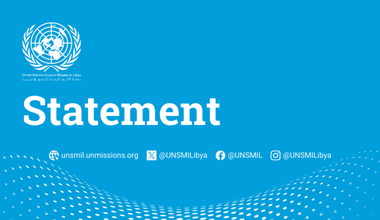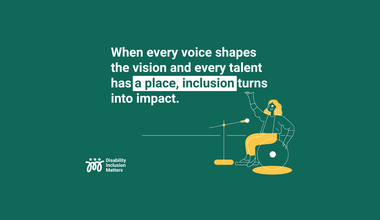Remarks of SRSG Salamé at the High-Level Event on Libya
New York, 20 September 2017
Six years ago, the Libyan people were promised a transition of 18 months. Their transitions continue, and if no action is taken, no end is in sight.
Since my appointment, I have done my utmost to meet with Libyans from across the country, to listen to their thoughts and hear about their lives. One message has been resoundingly clear. Libyans are fed up with transition.
A succession of transitions have failed to bring to the Libyan people what they want the most; stable, effective and predictable governance and decent living standards.
Rather, they have suffered from deteriorating conditions. Their economy is on a steep decline. Their infrastructure and public services are rapidly deteriorating. Law and order is scarce, and all the while, there is no single state authority which the people of the country can look towards. While there have been successes here and there, and they must be built upon, they are woefully insufficient.
Libyans seek an end to uncertainty and unpredictability.
That is why for a political process to succeed, captive institutions must be freed; split institutions must be reunified; and dormant institutions must be revived. This must happen in all areas of governance: political, security, judicial, social and economic.
Libya is a country with great possibility and its citizens can have a bright future.
A Libya which meets this promise is in the interest of all of us here. A stronger Libya will be better able to fight terror groups who operate on its land. It will be better able to control its borders. It will be an effective partner for all those seeking to work with it for shared goals and interests.
This future is within reach. The Libyans know it, the Member States gathered here know it, and the Secretary-General knows it – and he explicitly affirmed it. It is for this reason the Secretary-General asked me in our first meeting to work with him to devise an Action Plan for the country.
This Action Plan for Libya was not designed by me, but by the Libyan people who I crossed towns, cities and countries to speak to. It is, in essence, a synthesis of their hopes and goals.
The Libyan people want a process which is inclusive. A way forward with clearly defined stages and objectives, where each stage calls for the next, in a strict timeframe.
Libyans want a process that they themselves own and lead. We, the United Nations, stand ready to facilitate and support them, and we hope that you, the Member States will work with us to do so.
The Libyan Political Agreement remains the only framework to end the Libyan crisis. The Libyan Political Agreement is necessary, but in its current state it is not adequate.
The first stage in the process must therefore be to amend the Agreement. There is a broad consensus on the issues requiring amendments. Next week, on the basis of article 12 of the LPA, I am convening, in the UNSMIL offices, a drafting committee to formulate these amendments.
Once the amendments have been adopted, the second stage is a National Conference. Such a Conference is intended to open the door to those ostracized, those self-marginalized, those players who have been reluctant to join the political process. This would be the epitome moment of their National Reconciliation. To be inclusive, this conference needs to bring together members of the House of Representatives, of the High State Council, and many others insufficiently or entirely non-represented in these two bodies. The United Nations would be honored to host such a conference under the auspices of the Secretary-General.
In this Conference, the identification and selection of members of the reconfigured executive institutions of the country will be made on a consensual basis.
After the Conference, the House of Representatives and the Constitutional Drafting Assembly should work in parallel.
The House of Representatives would be expected to prioritize the legislation for a Constitutional referendum, Presidential, and Parliamentary elections. I call on all the members of the Parliament to assume their responsibility as representatives of the Libyan nation, and reactivate their legislative power.
The Constitutional Drafting Assembly will have the opportunity to review and refine its work, taking into consideration the observations and suggestions expressed during the National Conference.
This political sequence must be underpinned by concrete progress in a number areas:
- The High National Election Commission must get ready for the electoral events. The United Nations stands ready to provide the support required.
- There must be dialogue with the armed groups, towards the eventual integration of their members within the political process and civil life.
- There must be an initiative to unify the national army.
- Local reconciliation efforts must continue and be intensified.
- Decisive actions must be taken to address the important issue of Internally Displaced Persons, including though a dedicated financing mechanism.
- Meanwhile, the entire United Nations family; political, humanitarian and development, will step-up its work to improve the lives of the Libyan people. I call on the member states to participate in a new round of funding for the United Nations Stabilization Fund, so it can significantly scale up delivery.
Within a year from now, we must reach the final stages of the process. These are a referendum for the adoption of the Constitution, and then, within the framework of the Constitution, the election of a President and a Parliament, henceforth clearly marking the end of the transition.
This process, in all its stages, is indeed meant to prepare the proper conditions for free and fair elections, which will usher Libya into institutional and political normalcy.
There is much to be done, and this plan is certainly ambitious. However, if the Libyan people can come together in the spirit of compromise and together write a new common national narrative, this plan is achievable.
The international Community has a decisive part to play in this. Together, we can support the Libyans by uniting around a single process, one where Libya leads and we all assist.
Past initiatives by member states or groups have been invaluable and we must build upon them. However, we are at a juncture now. Either we work together and give Libya its best chance, or we work apart and spread confusion. There is a real risk that a proliferation of initiatives will rob the Libyans of their chance, and I am sure we can all work together to give Libya the opportunity for revival and prosperity it needs and certainly deserves.
Thank you.
 United Nations Peacekeeping
United Nations Peacekeeping UN
UN









